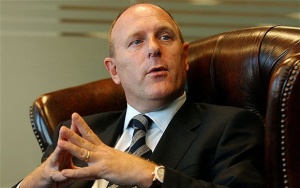EU Passporting rights are insignificant to British firms, says Moody’s
Any (albeit very small) speculation that London’s financial giants would move some of their operations to Europe in order to be included in MiFID passporting has been quashed by not only the industry giants themselves, but Moody’s which has now stated that the issue of passporting for British firms is of no consequence

In June this year, the British electorate took to the polls to vote in favor of re-establishing Britain, home to the world’s largest and most sophisticated financial center which ranges from Tier 1 banks that handle 49% of the entirety of global FX order flow, through top level prime of prime brokerages, to some of the world’s largest and most highly capitalized retail FX firms with their own proprietary technology.
London is a bastion of sophistication, has a vast and highly experienced range of senior executives which lead this industry forward, and is light years ahead in every possible aspect from way of life to opportunities and business structure to any of the European nations that it left behind on the day of the ‘Brexit’ this year.
Britain is now set to boom, and in some respects already is doing, as an independent center of world leadership from the ultra-modern plate glass institutions of the Square Mile and Canary Wharf without the burden of a non-producing and non-modern mainland Europe having a giant hand in Britain’s national purse.
The only consideration for this industry when the Brexit was announced was how the regulatory ‘passporting’ – a euphemism for firms European Union member states to provide services to customers in fellow European Union member states under their own national regulation as the MiFID directive prescribes.
Today, Moody’s has gone some way toward quelling that issue, stating that leaving the European Union single market and losing passporting rights under MiFID would not be anything like the disaster that pundits predict.
Research by Moody’s has been conducted at a time simultaneous to a continued political wrangling between Britain and the European Commission with regard to whether access to a single market would be possible post-Brexit.
It is somewhat fascinating that such lengths have been gone to in order to broker a deal with an unaligned, non producing and debt-ridden continent with no modernity and no participation in the financial markets economies of the global giants. A continent steeped in socialism and anti-business ideologies, to which Britain had to pay a fortune to support its improvident commercial structure for decades.
Instead, North America, Japan, China, Singapore, Hong Kong, Australia and South East Asia would be completely open and willing markets to an independent Britain, and likely much better aligned in terms of business.
Moody’s stated yesterday that
“On the face of it, [losing passporting rights] could be significant for many London-based firms, forcing them at a minimum to apply for authorisation to do business in other states, or at worst having to move staff and operational processes to a location within the European Economic Area (EEA).”
However, the ratings agency added: “In practice, we expect the impact of a formal withdrawal of the UK from the EEA to be limited for most UK financial institutions.”
The report could prove reassuring reading after Jens Weidmann, head of the German Bundesbank, said over the weekend that leaving the Single Market would automatically strip British-domiciled banks of their right to work across the EU. Interesting, considering that Deutsche Bank, one of the world’s largest interbank FX dealers by market share, conducts its entire electronic trading business from London, not Frankfurt.

Researchers cited EU equivalence rules – which apply to countries with broadly similar regulatory regimes – as allowing countries outside the EU to be treated on preferential terms. Moody’s listed a lengthy catalogue of financial activities which could be protected for “global investment banks” under the scheme if they chose to stay in London, including FX trading, trade execution, underwriting, portfolio management, and sales of derivatives.
“These provisions should also ensure that EU banks can operate in international capital and money markets which are largely based in London.”
Any “costs” of a loss of passporting rights for the UK’s banks would largely be as a result of any internal restructuring, temporary hits to profitability and a diversion of management resources while financial services firms figure out the new rules of the UK’s relationship, Moody’s said. “Other critical factors, such as capital and liquidity which are largely determined by global standards, are unlikely to face material change due to Brexit”.
Interestingly, it is Britain’s stalwarts which have a well established client base in Britain that are headed up by some of the most pro-Brexit senior executives.
CMC Markets, one of Brtain’s evergreen electronic trading firms that has a market cap of £655 million and whose customer base is largely UK-centric, with a further large client base in Germany, was founded by former Treasurer of the British Conservative Party Peter Cruddas, who donated £1 million to a campaign which advocates Britain’s independence from the EU, and is a regular contributor to editorials in mainstream press about the potential prosperity of a pro-Brexit Britain. Show me a French, German, Spanish or Italian multi-asset trading firm with its own proprietary platform and a solely domestic customer base that is this large and I will show you a fish riding a bicycle.
Another example is Peter Hargreaves, co-founder of Britain’s largest electronic financial services company, Hargreaves Lansdown.
Mr. Hargreaves co-founded Hargreaves Lansdown from a bedroom in 1981. In 2010, he stood down as CEO, receiving £18 million in payouts from dividends when he was succeeded as CEO by Ian Gorham. His net worth in 2011 stood at £1,025 million and the company that he founded has a market capitalization of £6.9 billion, solely from conducting business with British retail customers.
At the time of the Brexit vote, FinanceFeeds spoke in detail to many senior FX industry executives, most of whom were confident that there would be minimal effect, and if passporting was lost, British firms would establish an office in Cyprus. When asked whether they would establish in any other European nation, the answer was a resounding no.

To gain the full perspective on the legal aspect with regard to regulatory passporting we spoke to Demetris Taxitaris, General Manager of MAP S Platis, which is a prominent law firm, management consultancy and EMIR reporting entity for the FX industry, based in Cyprus.
Mr. Taxitaris, who is a regulatory expert and has published several works on the matter, explained “Firms established in the UK operate in other EU countries via the passport rule, which allows them to do so without any constraints other than the ones already imposed in the UK, being their home country. It is not yet entirely clear what the new state of play shall be in case the UK decided to exit the EU.”
“For example, special rules or a transitional period may apply to avoid distortion of the common market and to ensure potential damage control from both sides. Such arrangements, which are likely in our view, shall become apparent following a decision to exit and not before” he said.
“If we assume that the EU passport will be lost at some point, then obviously firms shall need to find ways to operate in EU countries. One such way would be to set up a firm at another EU jurisdiction which will allow passporting into other EU countries. Other options may include the UK firms being treated as 3rd country firms and being subject to additional constraints when operating in EU countries either remotely or via a branch, but this would be subject also to bilateral agreements between the regulators of the UK and each EU country” – Demitris Taxitaris, General Manager, MAP S Platis
“Having said that, we are observing for some time now firms which apply a dual jurisdiction setup within the EU for various reasons, including agility and risk mitigation. Such firms could be much more responsive in any situation and can absorb any shocks more easily” he concluded.
Photograph copyright FinanceFeeds









